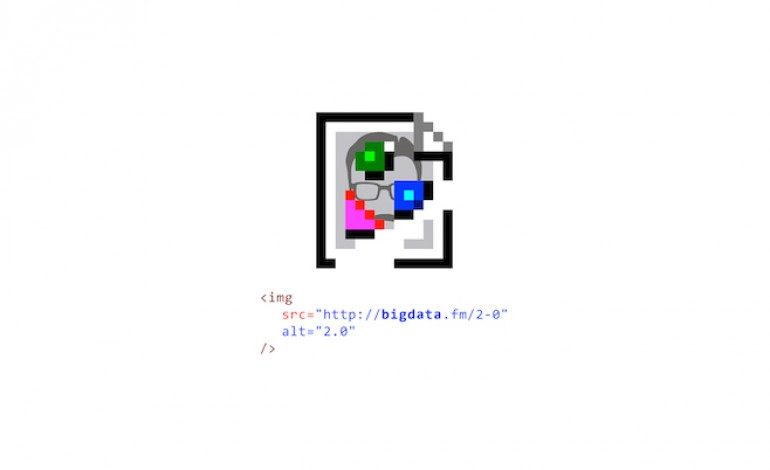

Listening In
As a stage name like Big Data suggests, producer Alan Wilkis is influenced by the technological advancements of the last few years and also aware of the havoc they have caused in some people’s lives. As Wilkis explained in a recent interview, “With each song on 2.0, I set out to explore a specific issue or moment in technology. And lyrically they are often voiced from the perspective of the ‘bad guy’ in the narrative.” In order to bring these bad guys to life, Wilkis assembled an eclectic cluster of musicians, among them Joywave, Rivers Cuomo, Kimbra, Twin Shadow, and Wye Oak’s Jenn Wasner.
With this type of musical backing and songs that contain thematic undertones of electronic-era espionage it should be no surprise that 2.0, the first full-length from Big Data, begins with a blast. “The Business of Emotions” kicks it off with shotgun-blasting beats sporadically firing over analog synths. That dark feeling doesn’t last long though, and “The Business of Emotions” quickly morphs into a clubby dance-pop number, complete with syncopated handclaps that lead to a hands in the air, sing-along chorus in the vein of over the top bubble gum pop – courtesy of White Seas’s Morgan Kibby.
Not to be out popped or out clubbed, Joywave vocalist Daniel Armbruster brings the party with his appearance on “Dangerous.” Built around a slow and steely funk infused bass line, “Dangerous” is a bouncy musical romp. However, a close listen to the lyrics reveals the song’s hidden deception. Armbruster sings, “How could they know, how could they know/ What I’ve been thinking?/ Like they’re right inside my head because they know/Because they know, what I’ve been hidin’.”
The most forefront narrative on 2.0 comes in the way of the jeu de mots “Snowed In,” featuring vocals by Weezer front man Rivers Cuomo. The narrative comes in the form of a US Government official using the soothing words of a lover. Cuomo’s lyrics paint the picture as he sings over heavy bass-laden synths that sound like boots on the march, “Guess I’m just Mr. Sensitive/ Whistleblowing is an act of aggression/ So he better run, cuz I’m gonna teach him a lesson.”
Unfortunately the big-ticket issues Big Data is trying to put forth on 2.0 become less convincing as the record progresses. Wilkis wants to have it both ways, and in this way he is not holding true to a musical democracy. This held truth becomes self-evident on later tracks like “Get Some Freedom” ironically sung by Canadian Martina Sorbara of the synth-pop trio Dragonette. Sorbara’s pretty falsetto lacks the vocal conviction heard on Big Data’s previous political contributions, making the lyrics and the ideas behind them seem a trite accompaniment to dance-club beat. This holds true for Bear Hands’ “Sick for Me,” and 2.0’s 80s throwback of a closer “Perfect Holiday,” which from a technical standpoint is a winner though it fails to win over the majority from a thematic standpoint.
Not to say that all political songs should be attributed to folk singers, however there is something which the acoustic guitar is able to get across in these situations better than drum, bass, and synthesizers, though to his credit, Wilkis does make a good run at trying to convince people otherwise. One thing that is certain here is that mainstream issues of freedom vs. oppression have never before been so easy to dance to. In this respect everybody wins.
